Those accustomed to Japanese literature know that there’s nothing better than the slow burn of a brand-new novel. That’s the thing about these books: Even when translated into English, they still carry with them an aura of tranquility and whimsy. Whether it’s a crime thriller, a love story, or a mystery novel, Japanese books aren’t meant to be consumed in a rush—they’re supposed to be savored patiently.
One of the most prolific Japanese authors of our generation is Haruki Murakami, an award-winning writer responsible for well-known stories such as Norwegian Wood and 1Q84. Once Murakami’s extensive bibliography or writing style has been exhausted, though, you might not know what to read next. If you’re looking to go beyond Murakami, Vantage is here to help you out with these Japanese literature recommendations.
If you enjoyed the growing pains and flashbacks of Kafka on the Shore…
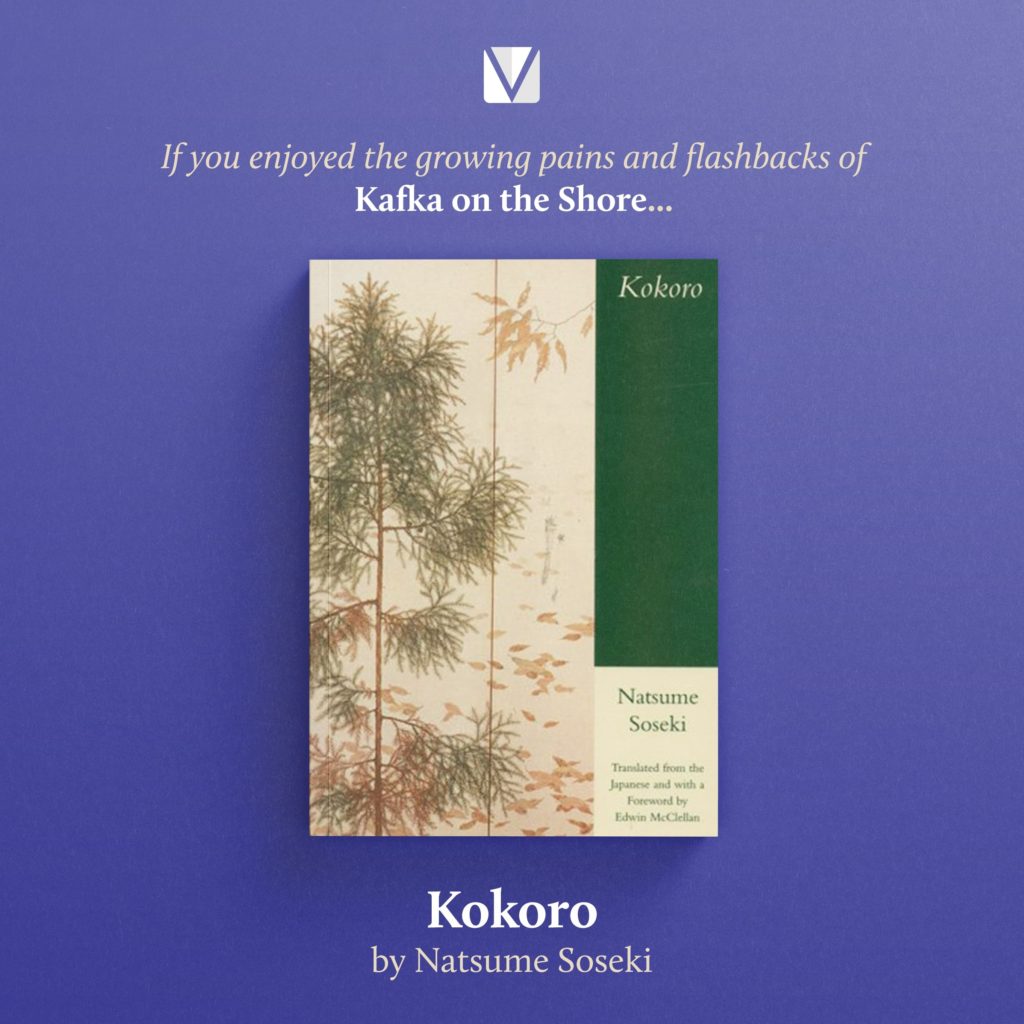
- Kokoro by Natsume Sōseki
Kokoro contains all the quiet composure of Japanese literature as a classic novel, even when discussing emotional struggles. With a title that literally translates to “heart,” this best-selling book is told in three parts, taking place during the transition of Japanese society from the Meiji era to the modern era. The story is further narrated by a fresh university graduate who befriends Sensei, an old man with a secret. Because the author Sōseki was a poet before becoming a novelist, readers can expect beautiful lyricism from his simple yet tantalizing prose.
If you reveled in the realistic viewpoint and identity crisis of the bildungsroman Colorless Tsukuru Tazaki…
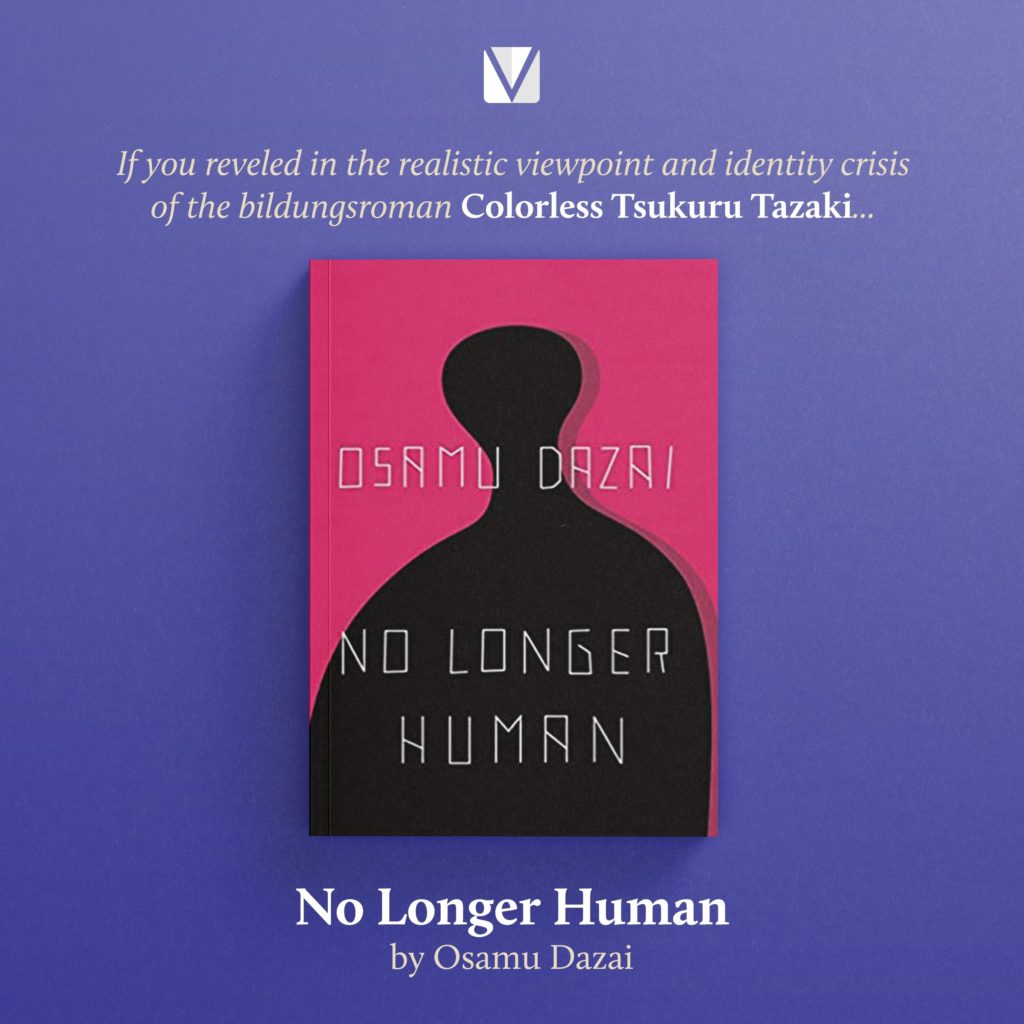
- No Longer Human by Osamu Dazai
No Longer Human is the second-best selling novel in Japan, only behind Natsume Sōseki’s Kokoro. The story is told in a series of notebooks, supposedly belonging to a man named Ōba Yōzō. A troubled youth, Yōzō finds it difficult to reveal his true self to people, choosing instead to use a humorous, almost-comical facade when forming relationships. The novel is regarded as semi-autobiographical in nature as Yōzō’s self-destruction mirrors actual incidents from the life of author Osamu Dazai.
If you relished the hair-raising suspense and peculiar mystery of 1Q84…
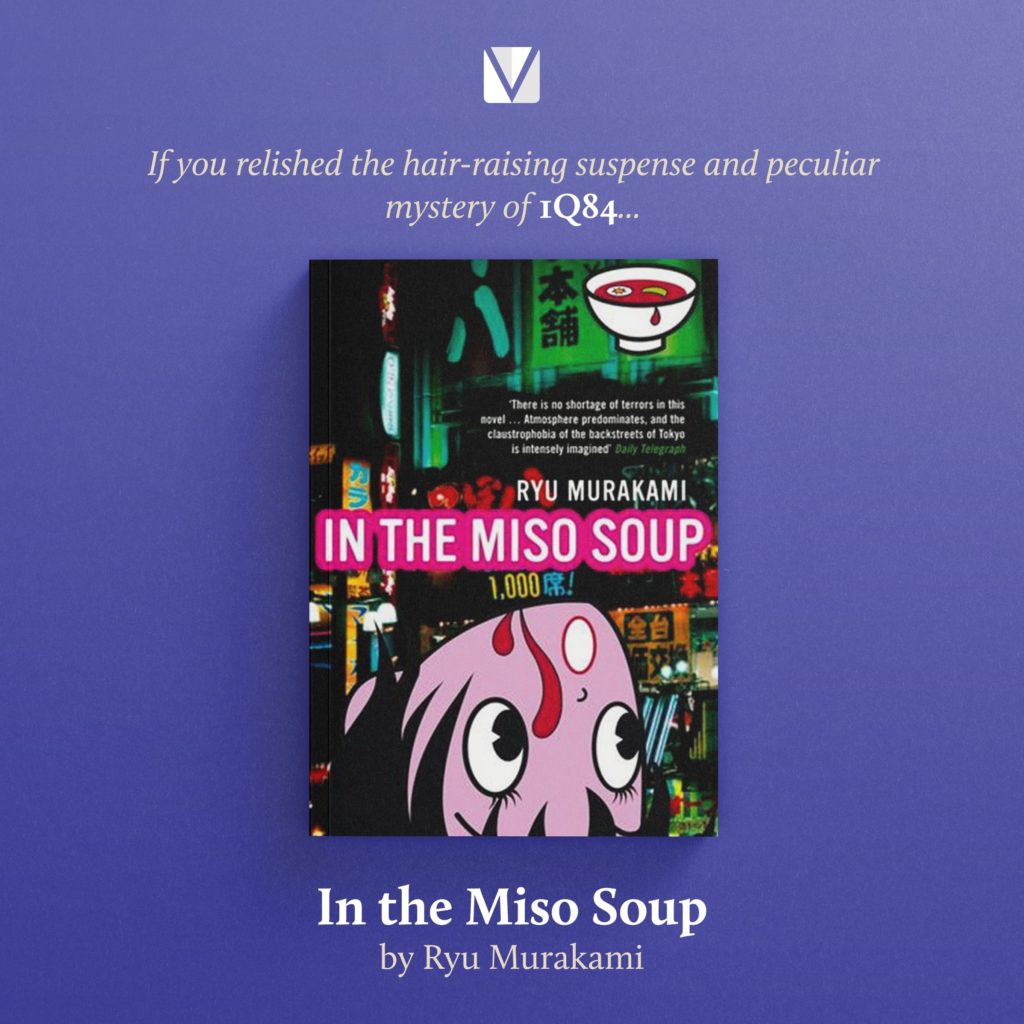
- In the Miso Soup by Ryu Murakami
Mystery and crime novel enthusiasts will surely be delighted by Ryu Murakami’s award-winning In the Miso Soup. Kenji, a 20-year-old man, thinks he’s seen it all working as nightlife tour guide for foreigners who want to explore the sex clubs and hostess bars of Shinjuku, Tokyo. On December 29, Kenji receives a phone call from Frank, an American man who asks for a three-day tour. What unfolds next is a string of mysterious and gruesome incidents—and Kenji suspects Frank has something to do with them.
If you couldn’t get enough of the violent thrills and captivating characters of After Dark…
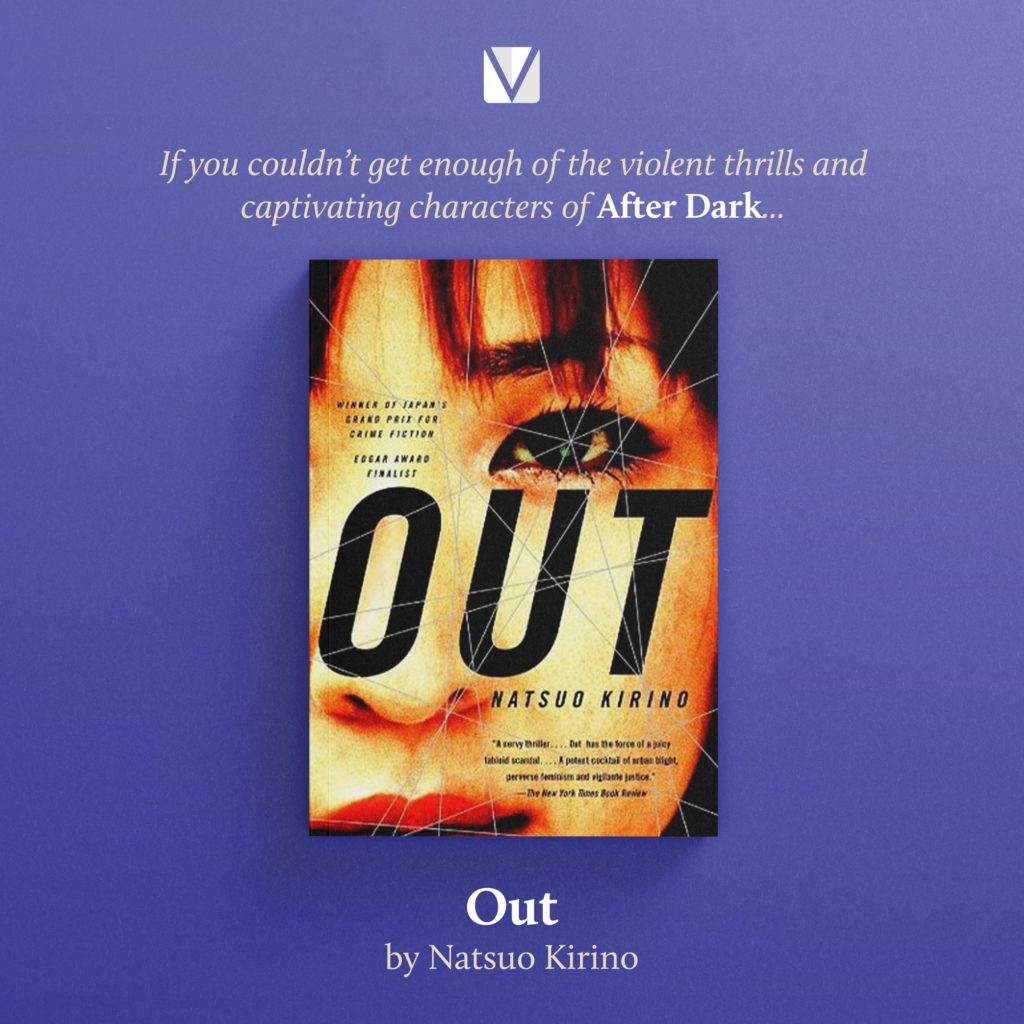
- Out by Natsuo Kirino
Author Natsuo Kirino has emerged as one of the leading Japanese female novelists of the detective fiction genre. Out tells the story of four impoverished women working the graveyard shift in a bento factory. Each woman grapples with their own personal problems, from abusive husbands, gambling family members, crushing debt, and more. As they are thrust into the harsh and unforgiving realities of life, the four women also find themselves in the midst of blackmail, a homicide case, several loan sharks, and a criminal hunting them down. Despite its thriller-like premise, Out also serves as an excellent social commentary for the patriarchy of Japan and the women who have to live in it.
If you liked the tragic love and character development of Sputnik Sweetheart…
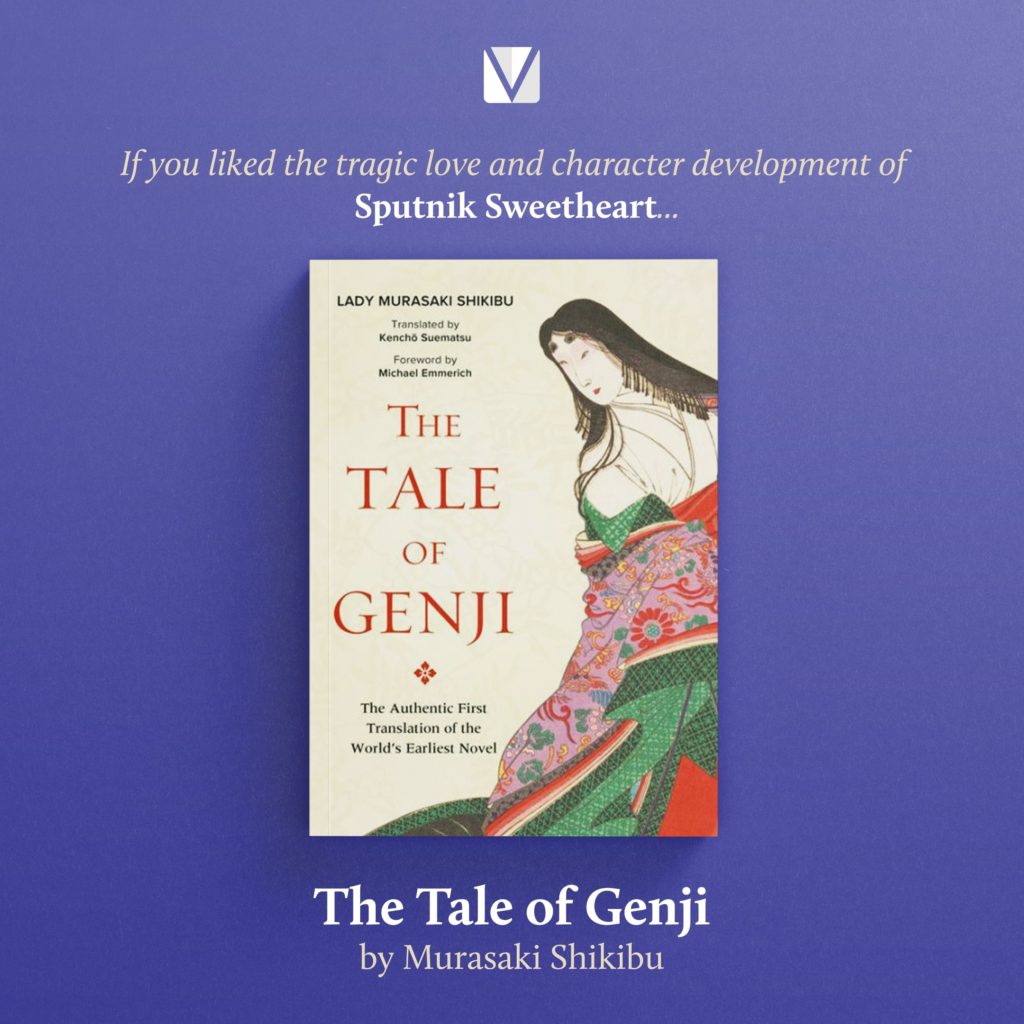
- The Tale of Genji by Murasaki Shikibu
Often called “the world’s first novel,” The Tale of Genji is an 11th century epic written by noblewoman and lady-in-waiting Murasaki Shikibu. The novel recounts the life and multiple love affairs of Hikaru Genji, the son of the Japanese emperor and a low-ranking consort. Handsome and intelligent, Genji is nicknamed “Shining Genji” but is reduced to civilian life due to political reasons. Like some of Murakami’s protagonists, Genji is deeply flawed—problematic, even—yet he manages to draw sympathy from readers. The book is a testament to the never-changing nature of humans. Although written ages ago, readers will find that the psychological musings of the book’s characters still ring true today.
When it comes to Japanese novels, there’s a plethora of options to explore. Whether or not you’re a fan of Murakami, these prosaic stories will definitely leave you wanting more.






